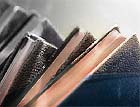Book Review: Jew Made in England
The memoirs of Anthony Blond brim with fresh fruity material, enthuses James Knox. Reading it is like sitting over a few vodkas with a beguiling friend.

Exquisite houses, the beauty of Nature, and how to get the most from your life, straight to your inbox.
You are now subscribed
Your newsletter sign-up was successful

Jew made in England, Anthony Blond, (Timewell Press, £14.00)
Anothony Blond sprang from the heart of the pre-war Jewish ascendancy in Manchester. His dashing father, heir to a textile business, had been at school with Simon Marks and Israel Sieff of the retailing dynasty. His mother was a Nahum, whose brother was the society photographer Baron Nahum
Young Blond was packed off to Eton, where he was one of only nine Jewish boys in the school. Oxford and national service followed. By this time, his father was married to Elaine Marks, sister of Simon. Her country house, Gotwick Manor, had every modern convenience, including a garden stream that could be turned on and off from indoors.
Against this fascinating family backdrop, which is brilliantly evoked, Blond grew up determined to exchange the world of textiles for letters. His first venture was a literary agency, but, before long, the attractions of founding his own imprint beckoned. For the next 20 years or so, Blond was to remain an exotic, rackety, sometimes brilliant, ornament on the publishing scene. His discoveries included Simon Raven, the scientist Rupert Sheldrake and the author of Small is Beautiful, E. F. Schumaker (the famous catchphrase was almost certainly coined by Blond).
This is a skilfully constructed book. Short stretches of chronology are interspersed with pen portraits, richly garnished with anecdote, which brim with fresh material and insight even though some of the cast, including Alan Clark, Graham Greene, Frances Partridge and John Betjeman, have been well-trawled elsewhere. Once Blond found himself stranded on a motionless train in the middle of nowhere with Betjeman. 'We must be near Ely,' Blond said. The poet opined: 'Can't you feel the reeds under the sleepers?'
Blond's private life has been an emotional roller coaster. He eventually retired from publishing due, he explains insouciantly, to the preoccupations of 'a boyfriend, a novel,a house in Corfu, and then a girlfriend, Laura, who became my wife'. Remarking to a journalist on his bisexuality, he said: 'Who am I to ban half the world from my bed?' This did not go down well in Southport, where his father-in-law, Roger Hesketh, squire of Meols Hall, was mayor and MP. But then the key to this fearless and original character lies in his instinct 'to rock rather than row the boat'.
Reading his autobiography is akin to sitting over a vodka 'or three' with a beguiling companion, whose gifts as a storyteller keep one spellbound until the last fruity, mischievous page.
Exquisite houses, the beauty of Nature, and how to get the most from your life, straight to your inbox.
Country Life is unlike any other magazine: the only glossy weekly on the newsstand and the only magazine that has been guest-edited by His Majesty The King not once, but twice. It is a celebration of modern rural life and all its diverse joys and pleasures — that was first published in Queen Victoria's Diamond Jubilee year. Our eclectic mixture of witty and informative content — from the most up-to-date property news and commentary and a coveted glimpse inside some of the UK's best houses and gardens, to gardening, the arts and interior design, written by experts in their field — still cannot be found in print or online, anywhere else.
